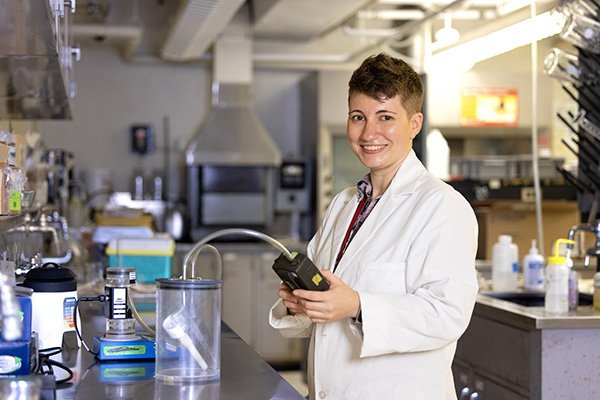Ready to shape the future of health? Do you enjoy deep analysis and digging through figurative weeds to find patterns or anomalies? Do you want to identify new ways that social, behavioral, and environmental factors affect global health? Do you want to uncover new truths that can be used to improve health care for millions, or even billions, of people?
A Master of Science (MS) degree will prepare you for a career in research or analysis, or for an opportunity to apply to a PhD program.
With an MS from the University of Minnesota’s School of Public Health (SPH), you will be able to:
- Draw inferences from quantitative data
- Write and evaluate scientific literature
- Complete research that informs the future of health systems
MS grads lead research in universities, government agencies, research centers, and healthcare organizations, driving innovation and evidence-based solutions.

The Master of Science (MS) and Master of Public Health (MPH) degrees prepare students to help improve the health of the general public. They come at this goal from very different perspectives. Dive into the details below to learn more.
| Degree | Focus | Types of Jobs |
|---|---|---|
| Master of Public Health (MPH) | Prepares you for a career as a public health practitioner. |
|
| Master of Science (MS) | Prepares you, through rigorous research, for a career in science and/or the opportunity to pursue a PhD. |
|
Graduates with an MS degree can do research and work that has grand-scale implications. Advances in their field of study can improve the health of millions, if not billions, of people worldwide.
The job outlook is also bright. According to the Bureau of Labor Statistics, the healthcare industry is expected to add more jobs than any other field in the coming decade. Health care jobs in general are expected to increase by 14 percent and management roles by 28 percent between 2021 and 2031.
Graduates with an MS may also find lucrative salaries. Here are the average salaries in the U.S. for jobs that often require a Master of Science degree, as reported by ziprecruiter.com:
| Academic Physician | $82,121 |
| Biomedical Researcher | $74,910 |
| Biostatistician | $118,078 |
| Environmental Chemist | $57,466 |
| Epidemiologist | $89,398 |
| Industrial Hygienist | $72,580 |
| Senior Research Analyst | $67,851 |
Top-ranked by U.S. News & World Report, the University of Minnesota School of Public Health offers students several key advantages.
Innovative Research. Our research drives significant health improvements, like developing a model to track foodborne illness outbreaks. Faculty, students, and alumni work on projects that shape public health policies, improve prevention, and create lasting change in communities worldwide.
Connections. Partnerships with Twin Cities communities, state agencies such as the Minnesota Department of Health, nonprofit organizations, policy makers and local companies including the Mayo Clinic, UnitedHealth Group, 3M, Medtronic, and Ecolab provide opportunities for collaboration and real-world experience.
Supportive Environment. Students are supported by our accessible faculty and a network of more than 12,000 alumni who are dedicated to student success and mentoring.
Integrated Health Sciences. The University of Minnesota’s innovative infrastructure of six health sciences schools—one of four such models in the country—gives our students the ability to learn from and work with a diverse array of health experts.
SPH offers the following MS programs, which each require a thesis and usually takes two to three years to complete.
Biostatistics
Biostatisticians turn data into actionable insights to solve health problems. With this MS degree, you’ll develop the tools and methods needed to analyze complex data and make an impact. This rapidly growing field offers diverse career opportunities.
Learn more: Biostatistics MS
Clinical Research
Clinical researchers play a key role in uncovering the unknowns of diseases and their outcomes. With this MS degree, you’ll learn to interact with patients, develop therapies, conduct clinical trials, study behavior, and write grants to drive advancements in health.
Learn more: Clinical Research MS
Environmental Health
This MS program provides a strong foundation in environmental and occupational health, preparing you to tackle public health challenges. You can choose an area of emphasis like global health, epidemiology, toxicology, or injury prevention and more, which set you up for impactful work in health and safety.
Learn more: Environmental Health MS
Occupational Hygiene
This MS program focuses on protecting the health and safety of workers, communities, and the environment by addressing workplace hazards like chemicals, physical agents, and biological risks. You’ll have an opportunity to tailor your education through electives, including options for a minor, in collaboration with your academic advisor.
Learn more: Occupational Hygiene MS
Health Services Research, Policy & Administration
Gain a deep understanding of data analysis and research methods to improve healthcare services and population health. Learn in-demand skills to drive strategic decisions. With this MS degree, you’ll learn how to collect, manage, analyze, interpret, and communicate data to improve community health.
Learn more: Health Services Research, Policy & Administration MS
